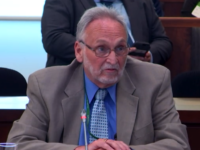The Rogers outage came to Parliament Hill yesterday as the Standing Committee on Industry, Science and Technology conducted four hours of hearings into the issue. The day started with Innovation, Science and Industry Minister Francois-Philippe Champagne, followed by Rogers CEO Tony Staffieri, CRTC Chair Ian Scott, and a panel of consumer and public interest voices. I was pleased to be part of the final panel and I’ve posted my opening remarks below and created a special Law Bytes podcast featuring my opening remarks and the question and answer session with MPs.
Post Tagged with: "scott"
Responding to the Rogers Outage: Time to Get Serious About Competition, Consumer Rights, and Communications Regulation
Like many Canadians, I spent most of the massive Rogers outage completely offline. With the benefit of hindsight, my family made a big mistake by relying on a single provider for everything: broadband, home phone, cable, and wireless services on a family plan. When everything went down, everything really went down. No dial tone, no channels, no connectivity. Work was challenging and contact with the kids shut off. It was disorienting and a reminder of our reliance on communications networks for virtually every aspect of our daily lives.
So what comes next? We cannot let this become nothing more than a “what did you do” memory alongside some nominal credit from Rogers for the inconvenience. Canada obviously has a competition problem when it comes to communications services resulting in some of the highest wireless and broadband pricing in the developed world. Purchasing more of those services as a backup – whether an extra broadband or cellphone connection – will be unaffordable to most and only exacerbate the problem. Even distributing the services among providers likely means that consumers take a financial hit as they walk away from the benefits from a market that has incentivized bundling discounts. Consumers always pay the price in these circumstances, but there are policy solutions that could reduce the risk of catastrophic outages and our reliance on a single provider for so many essential services.
CRTC Ruling Signals How Bill C-11 Could Be Used To Regulate Internet Content
Just one week after Canadian Heritage and CRTC officials provided assurances to a Senate committee that the Commission’s regulatory powers over freedom of expression were constrained by the Charter of Rights and Freedoms, the CRTC yesterday released a ruling in which the majority ignored the Charter altogether in regulating content on Radio-Canada. The decision signals how Bill C-11 could be used to regulate Internet content the CRTC deems contrary to Broadcasting Act policy objectives. It also continues a disturbing trend of revelations that have come in the aftermath of Canadian Heritage Minister Pablo Rodriguez cutting off debate to rush the bill through the House of Commons: officials later admitting that the $1B claim of benefits is merely an “illustrative” estimate, CRTC Chair Ian Scott opening the door to indirect algorithmic regulation, and now the release of a decision on content regulation that dates back to November 2020.
CRTC Chair Ian Scott Confirms Bill C-11 Can Be Used To Pressure Internet Platforms to Manipulate Algorithms
The Senate Standing Committee on Transport and Communications held an exceptionally important hearing as part of its Bill C-11 pre-study (which is about to change into a Bill C-11 study) last night featuring Canadian Heritage officials and CRTC Chair Ian Scott. I will have a second post on the officials, who struggled to provide clear answers to basic questions on everything from how to identify what counts as Cancon for user content (Youtube’s Content ID was suggested) to the absence of thresholds for what is covered by the bill (there are no thresholds and the government wants the ability to also target small streamers). But the key moment of the day came in questioning Scott about the discoverability and the potential for algorithmic manipulation.
CRTC Chair Ian Scott Confirms It Yet Again: Bill C-11 Includes Regulatory Power On User Content
The Online Streaming Act hearings at the Canadian Heritage committee continued yesterday with testimony from several notable witnesses, including CRTC Chair Ian Scott. Scott had appeared before the committee several weeks earlier, confirming that Bill C-11 contains a provision that captures user content regulation, acknowledging that “as constructed, there is a provision that would allow us to do it as required.” That statement would not ordinarily be controversial since the inclusion of user content has been readily apparent since the bill was introduced. I’ve argued that Heritage Minister Pablo Rodriguez has engaged in systematic gaslighting with his insistence that user content is not in the bill. My post on the issue walks through the proposed legislation, noting the “CRTC is empowered to create regulations applicable to user content uploaded to social media services as programs” and focusing specifically on the discoverability rules and their implications.
Scott’s appearance was presumably designed to walk back or soften his earlier statement on user content regulation in the bill. And while he was at pains to suggest that the CRTC faced strict limits in its regulatory power, he once again acknowledged the reality:











